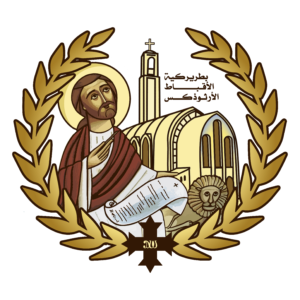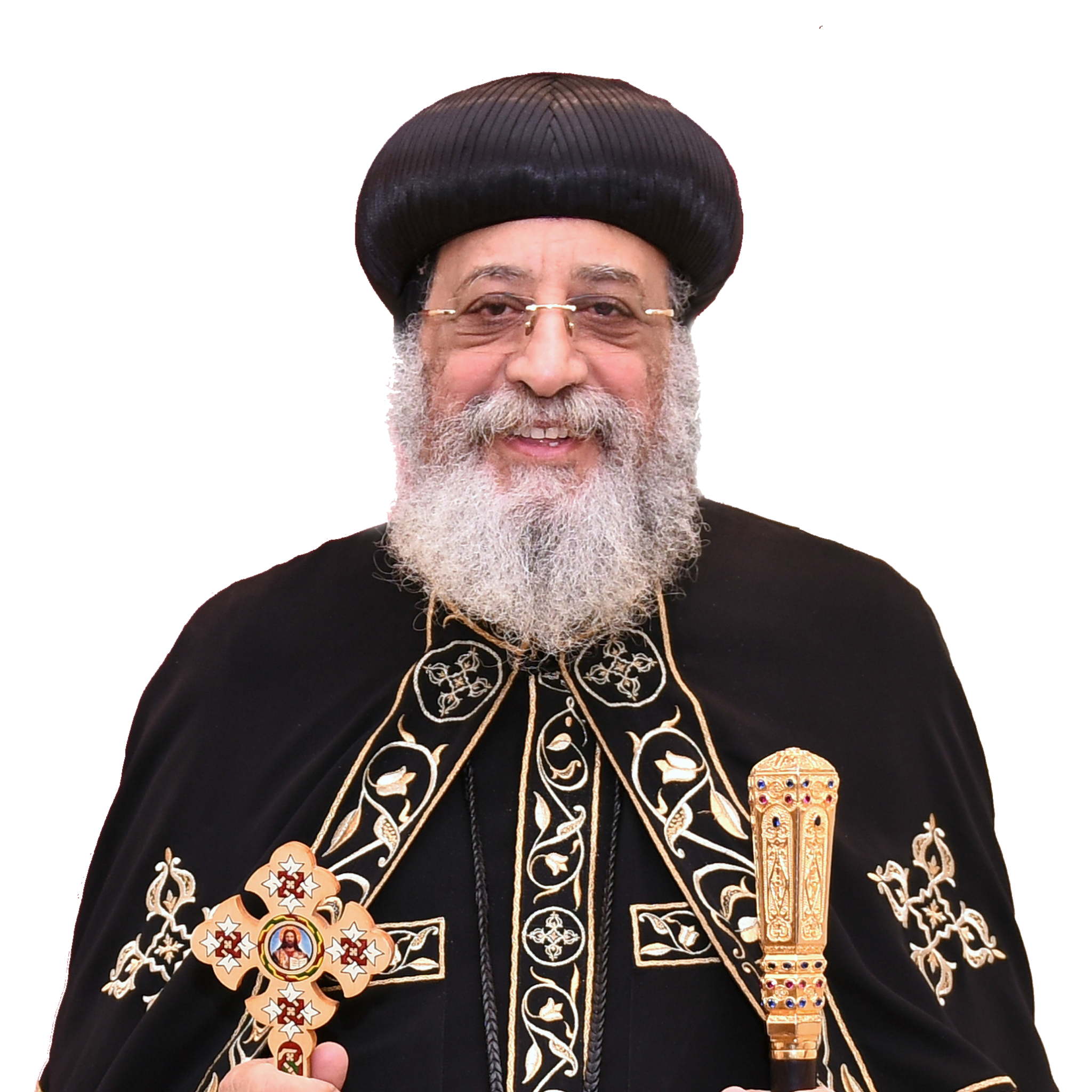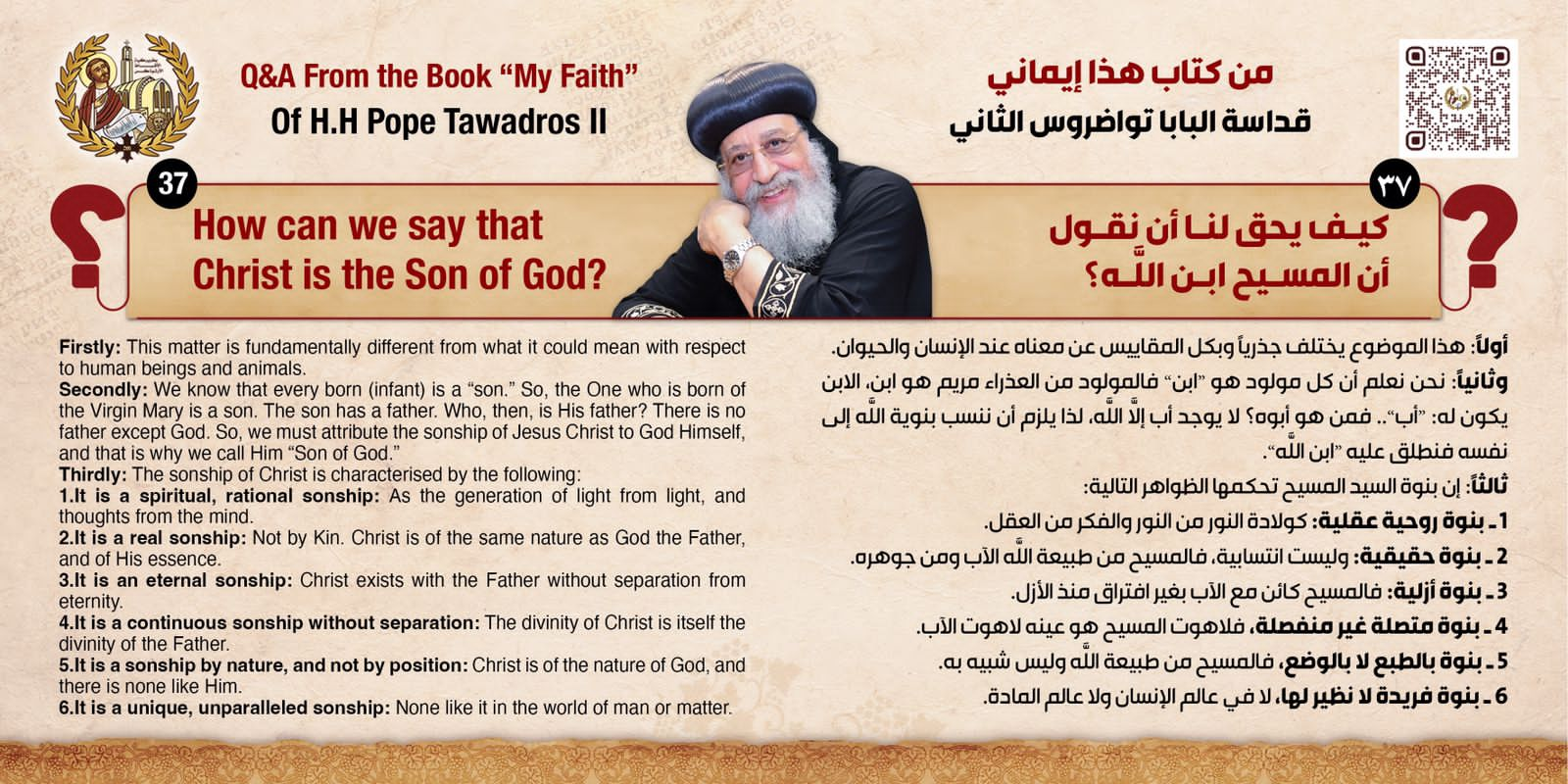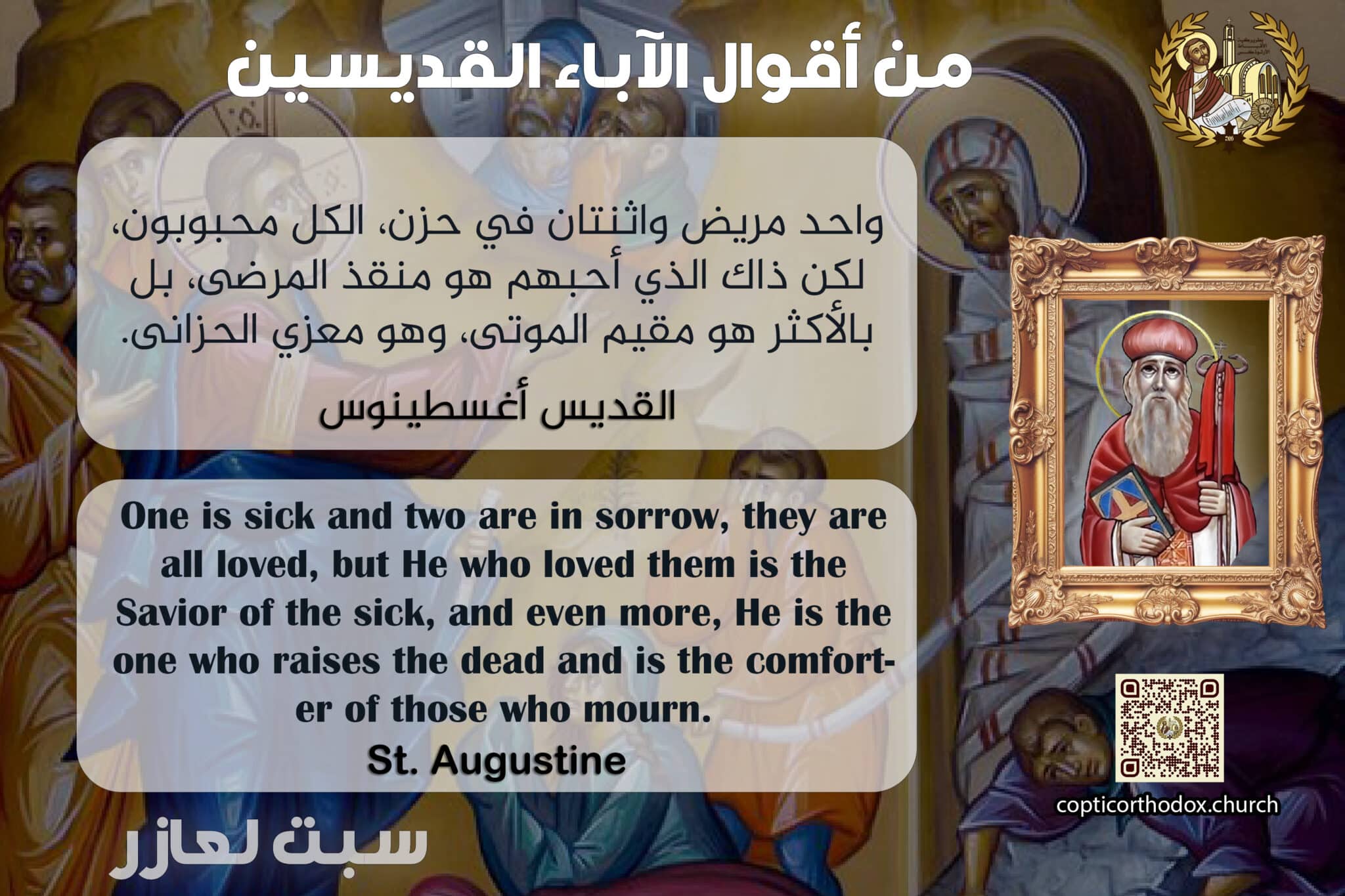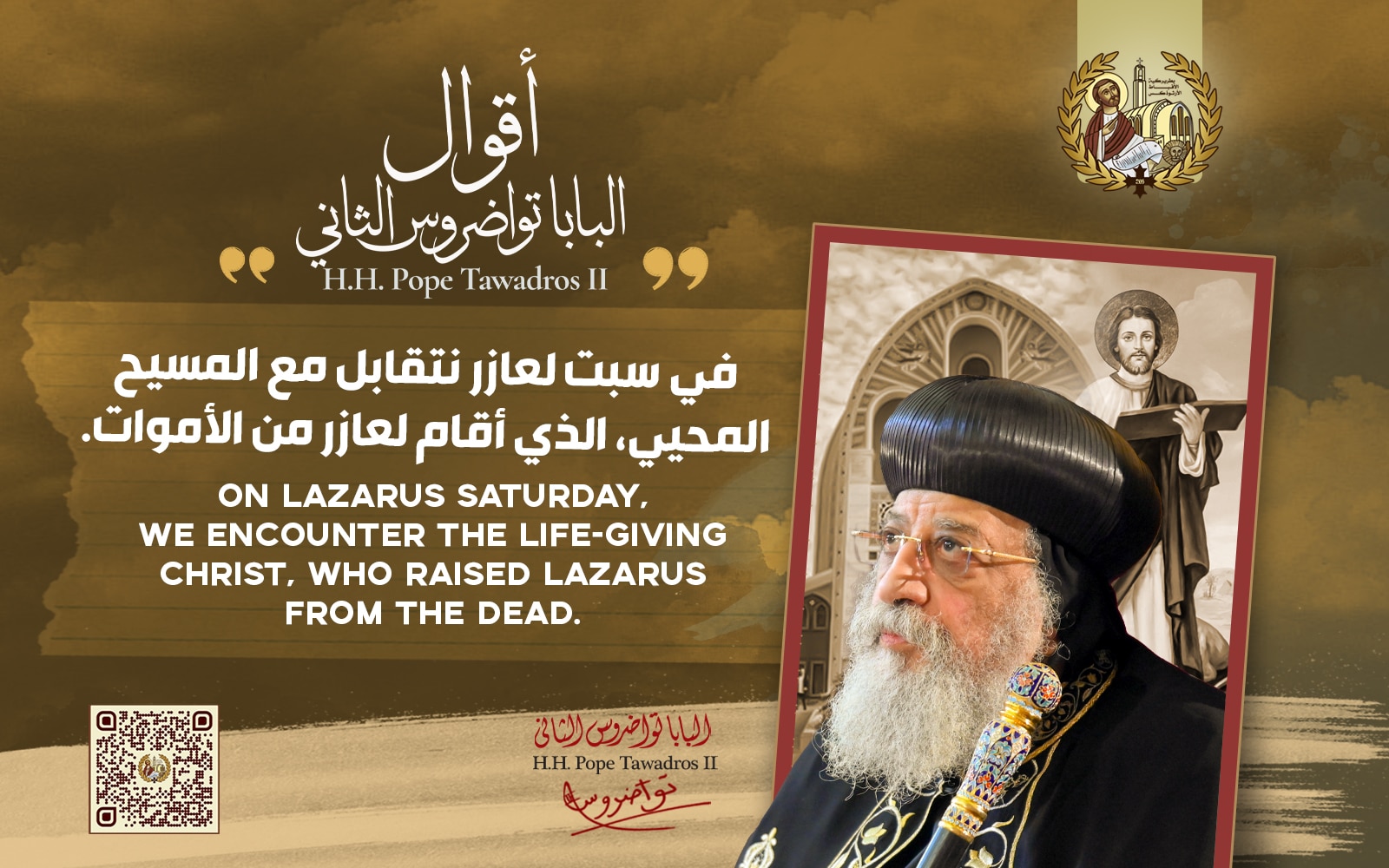April 8, 2024
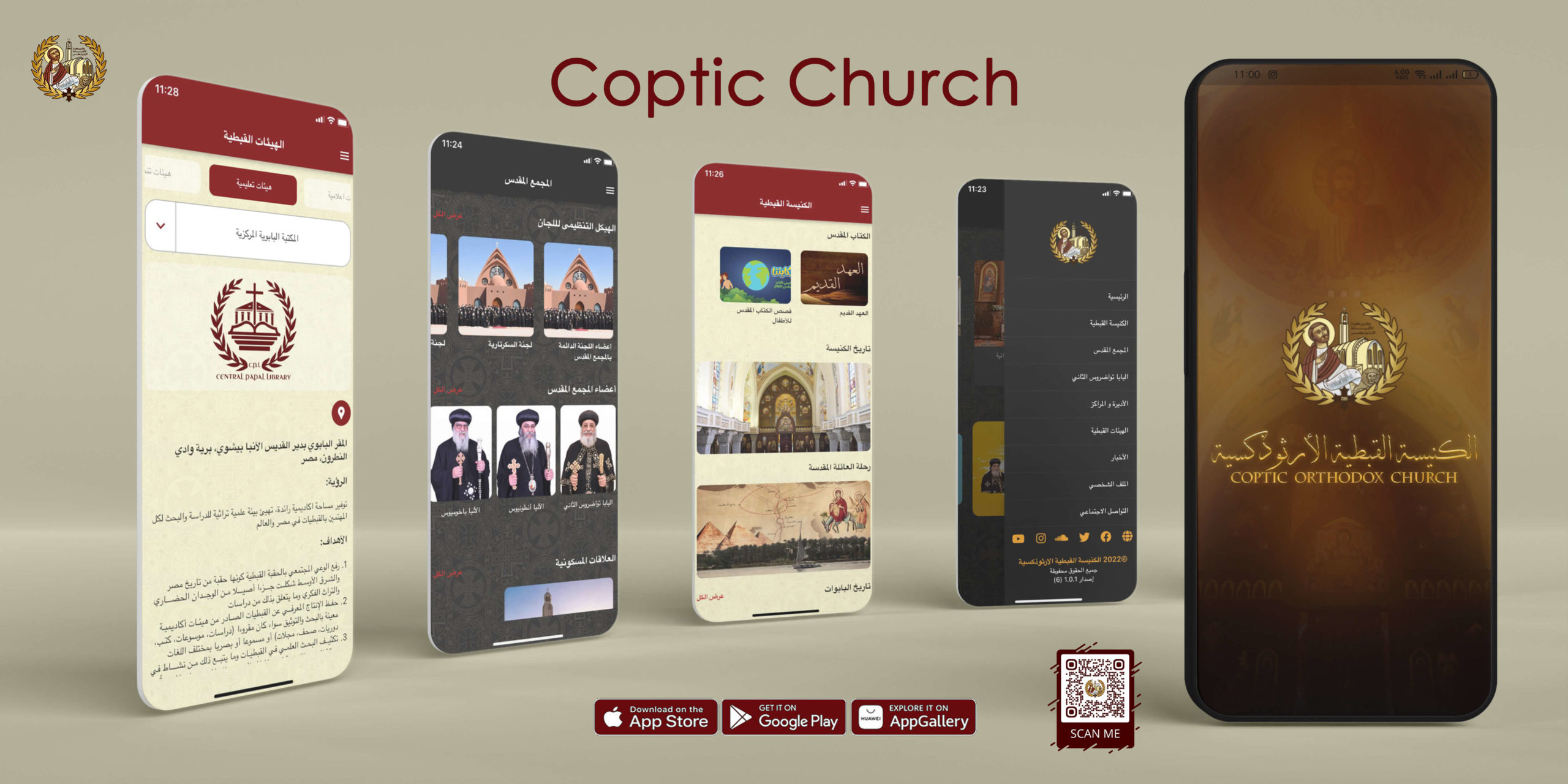
Papal Encyclical
of the Glorious Feast
of Nativity 2024
H.H. Pope Tawadros II
Praise be to God, we visited many countries. All these countries are blessings, and all of them are God’s creation, across the whole world. I travelled to England before monasticism, and during monasticism I travelled to multiple countries. As a bishop and pope, I visited many countries. Egypt has a special nature, and this nature comes from history. Egypt has a great history, so I encourage you to read about the ancient, middle and modern history of Egypt. Additionally, the Lord Christ visited the land of Egypt, which truly gave it a blessing.
He moved in it from east to west, and from north to south, blessing it indeed. Egypt’s air has value, its soil has value, and the Egyptians have value among all the peoples of the world. We are a social nation. We like to be near each other and ask about each other. Since the days of the Pharaohs, we have felt near to each other, because of the Nile River. All nations are precious, but Egypt has advantages that are not found in other countries.
On the map, Egypt is on the corner of the continent of Africa, and therefore it has many advantages. The area of this continent is 30 million square kilometers. Egypt occupies one million of this, but a precious one million. The continent of Africa’s size is equivalent to the size of America, Europe and Russia together. Our country, with its location, history, civilization, and everything in it is more than wonderful! We need to look after it. Egypt’s godness is really great. Whoever lives in Egypt receives the blessing of the Holy Family, St. Mark, the saints, the monasteries, and the blessing of the great Egyptian history. Therefore, I see that Egypt is really in God’s heart. His eyes are on it, and His hand works in the midst of all the events.
Articles
In commemoration of our celebration of the fast of our fathers, the pure apostles, we remember their service all over the world. We contemplate on some of the service of our teacher Peter the Apostle, as mentioned in the ninth and tenth chapters of the Book of Acts.
They tell us about the service of our teacher, Peter the Apostle in Lydda and Jaffa. The service of all the apostles was characterized by travelling. The book of Acts speaks a great deal about the mission trips of our teachers Peter and Paul the Apostles. These trips played a big role in spreading the faith. They also revealed how willing the apostles were to weary themselves for the Lord’s sake.
Some may assume that the mission trips were only carried out by our teacher Saint Paul, but the one who studies Acts realizes that the travels of our teacher Saint Peter were not short, as the distance between Lydda and Jaffa is atleast one hundred miles. The missionary spirit has always been associated with traveling and toiling in order to visit the believers and spread the faith.
As for the service of our teacher Peter the Apostle, it appears to be linked to the service of his brothers the apostles. He was previously serving in the same area where Philip the Apostle accompanied the chariot of the Ethiopian eunuch, explained the faith to him and baptized him. This reveals that the fathers the apostles felt they were completing each other’s work, which is an important missionary aspect of the apostles’ service. The work between them was coordinated and related to one another’s service. Each one of them served with his brother and felt a responsibility towards the service of the other. Together, they completed their work.
An issue that troubles the service is the servant’s independence from his brother and his lack of responsibility towards his
brother’s service.
The service of our father Peter the Apostle was influenced by the person and service of the Lord Christ Himself. He followed the Lord’s same steps and words, for he said to Aeneas the paralyzed “arise”: (Now it came to pass, as Peter went through all parts of the country, that he also came down to the saints who dwelt in Lydda. There he found a certain man named Aeneas, who had been bedridden eight years and was paralyzed. And Peter said to him, “Aeneas, Jesus the Christ heals you. Arise and make your bed.” Acts 9:32-34)
He likewise said to Tabitha who had died: “Tabitha, arise” (Acts 9:40). This is exactly like what the Lord Christ did, and made others participate, for He said to the paralyzed man at the pool of Bethesda: “Rise, take up your bed and walk” (John 5). Peter said to Aeneas: “Arise and make your bed.”
Saint Peter is teaching us by his example how to imitate the Lord Christ. Therefore we refer to the fathers the apostles as the imitators of the Lord Christ. Through this, he also teaches us the need for man to have a role in his salvation, which is consistent with the spirit of the Gospel. The Bible always confirms that the Lord Christ cares about the role of man along with the role of the servant.
He likewise said to Tabitha who had died: “Tabitha, arise” (Acts 9:40). This is exactly like what the Lord Christ did, and made others participate, for He said to the paralyzed man at the pool of Bethesda: “Rise, take up your bed and walk” (John 5). Peter said to Aeneas: “Arise and make your bed.”
Saint Peter is teaching us by his example how to imitate the Lord Christ. Therefore we refer to the fathers the apostles as the imitators of the Lord Christ. Through this, he also teaches us the need for man to have a role in his salvation, which is consistent with the spirit of the Gospel. The Bible always confirms that the Lord Christ cares about the role of man along with the role of the servant.
This page is also available in:
العربية
Français
Italiano
Nederlands
Deutsch
Ελληνικα
